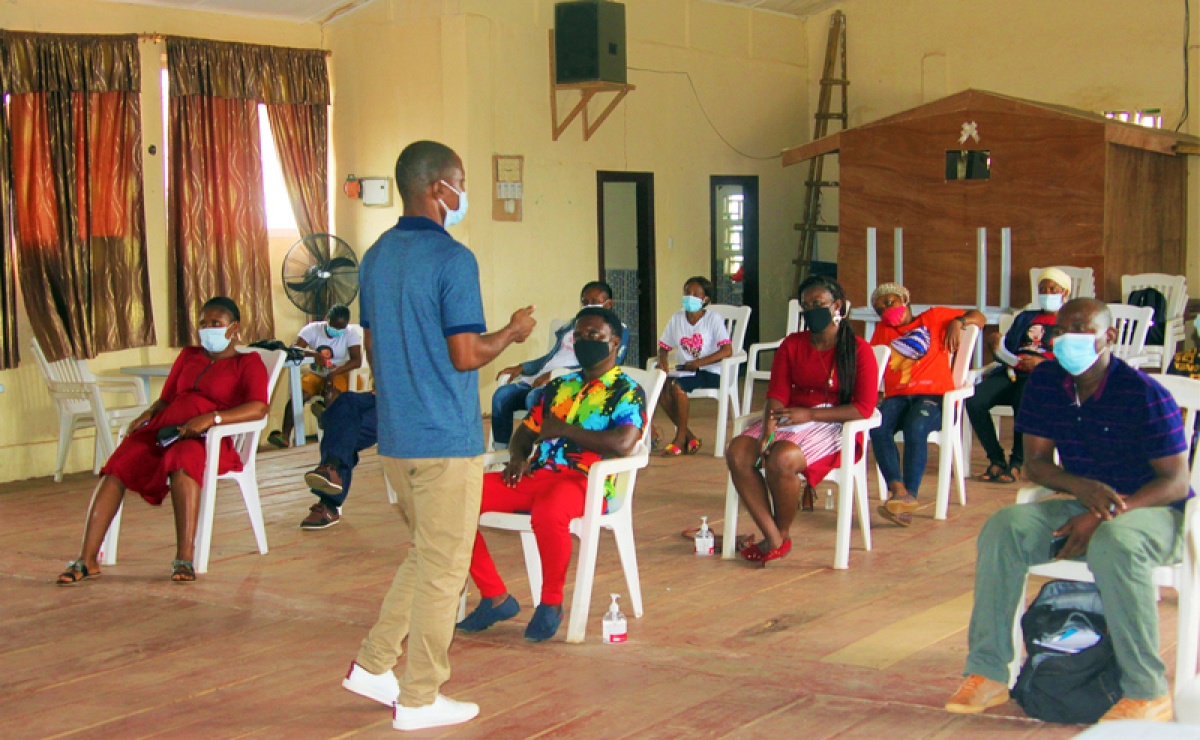In Liberia, Nurses Learn How to Manage Delirium in Patients
Three-day training empowers nurses, prevents patient harm
Posted on Oct 12, 2021

Mental disturbances from delirium are usually temporary, but they can be life-threatening—which is why it’s critical to recognize and diagnosis the condition. At PIH-supported J.J. Dossen Memorial Hospital, 16 nurses recently received delirium and agitation training and are now equipped to provide better care to patients.
During the three-day course in Maryland County, Liberia, nurses learned how to identify, assess, refer, and effectively treat patients with delirium, which is a serious disturbance in mental abilities that can come on suddenly and results in confused thinking and reduced awareness of the environment. Nurses also learned about core psychotherapy approaches, such as Common Elements Treatment Approach and one-on-one daily counseling; and how to gather information to obtain a comprehensive overview of a patient’s mental health history.
The goal of the training was to equip nurses with skills and, ultimately, reduce the number of patients who die from delirium.
“From January to June 2021, we lost seven patients because of delirium. We also had nine patients diagnosed with delirium during ward rounds specifically for mental health support, which I think the nurses didn’t recognize. We decided to have this training because of that,” says Willis Yansine, PIH Liberia’s mental health coordinator, who co-led the training alongside Dr. Kurcine Kollie, an emergency medicine physician at J.J. Dossen Memorial Hospital.
Delirium can often be traced to one or more contributing factors, such as a severe or chronic illness, changes in metabolic balance (such as low sodium), medication, infection, surgery, or alcohol or drug intoxication or withdrawal. In some cases, patients experience hallucinations, anxiety, and have fluctuating levels of consciousness, all of which can lead to accidents or self-harm causing death.
Patients usually experience delirium at night, but the cases often aren’t diagnosed until the morning or later, explains Kollie. And in many instances, it’s not diagnosed at all.
“We’ve had patients who began to get more confused and the health worker thought it was psychosis or some other mental health condition. They could not identify it as delirium,” says Kollie.
Nurses are now able to identify behavior change and signs and symptoms of delirium because of the PIH training, led in collaboration with the Ministry of Health. Ideally, the nurses will be able to identify and address it early on in care, then consult with the attending doctor. Delirium is usually managed by addressing the underlying causes and adjusting environmental factors, such as lighting in the ward. Health care workers also help reassure patients by orienting them to the time of day and their location.
Previously, the lack of knowledge affected the team’s ability to address delirium. Now, “with this training and information, we can help reduce the death rate (due to patient agitation and delirium) in Maryland County,” says Samuel Nyenkpor, director of nursing services at J.J. Dossen Memorial Hospital.

